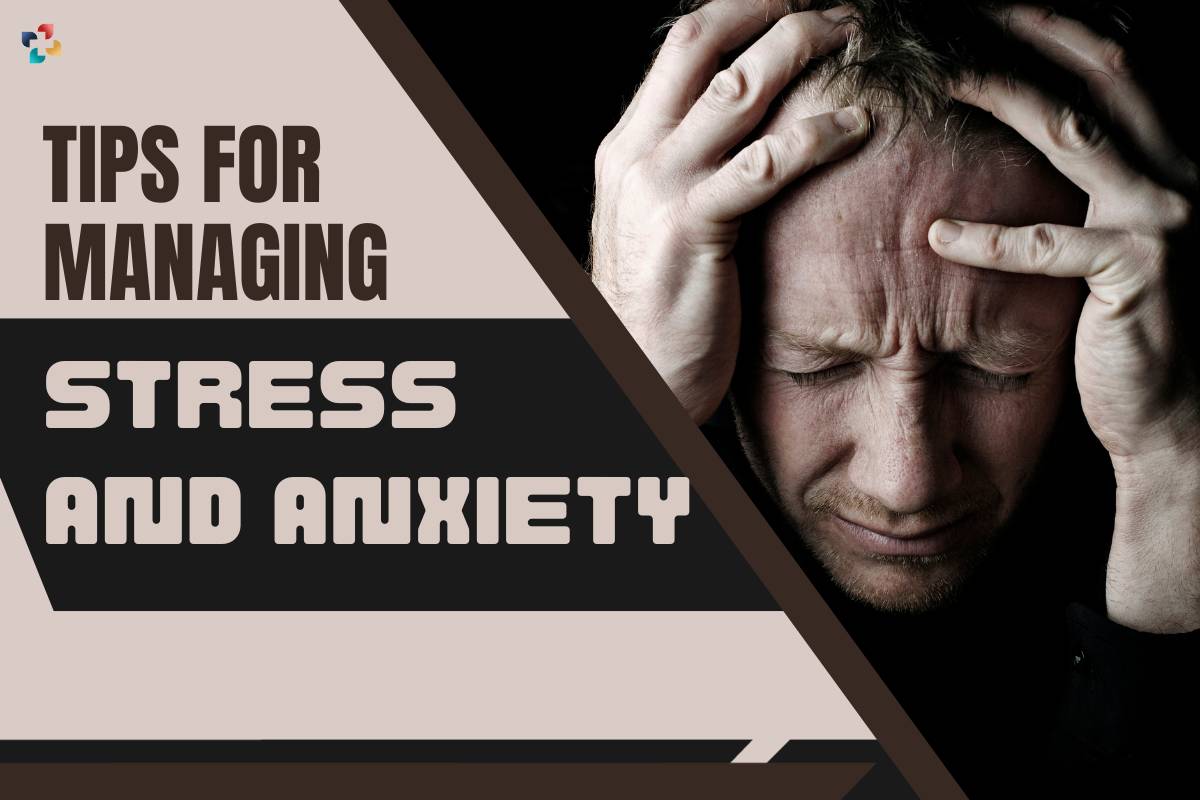Everybody gives us tips for managing stress. Each has his/her own way of managing stress. But due to the desk-bound lifestyle, targets to chase in office, and trying to manage the work-life balance, we all have been stressful for a long period of time. Managing stress is important as, if ignored, it will have harmful effects in the future. There is no such thing as stress immune. No one can be immune to stress.
The payments of rent, loan instalment, monthly expenses, children school fees, househelp’s salary, in short, the list goes on and on. So does the stress. There is no breakage point for the stress. So, we ourselves have to take time out of the limited 24 hours and manage our health. Stress creates havoc on our mental and emotional well-being. Professional life and personal life issues will keep existing, but the way we handle it makes all the difference. To handle the things better, we need to be stress free.
So talking about the tips for stress management, let’s read more on Anxiety: 8 Tips For Managing Stress and Anxiety:
- Identify Stressors
Understanding the sources of your stress and anxiety is the first step to managing them effectively. Take a moment to identify what specific situations, tasks, or circumstances trigger these feelings. By recognizing the root causes, you can work on addressing them directly.
- Practice Mindfulness
Mindfulness is a powerful technique that involves being fully present in the moment and paying attention to your thoughts and feelings without judgment. It can help you detach from anxiety-provoking thoughts and focus on the present. Techniques like deep breathing exercises, meditation, and yoga can aid in cultivating mindfulness. This is one of the most important tips for managing stress.
- Engage in Regular Physical Activity

Physical activity has been proven to be an effective stress buster. When you exercise, your body releases endorphins, natural mood lifters that can help reduce stress and anxiety. Regular physical activity can also improve sleep quality and overall well-being, making it an essential tool for managing stress.
- Prioritize Sleep
A good night’s sleep is vital for managing stress and anxiety. When you’re well-rested, you’re better equipped to cope with daily stressors. Create a sleep-friendly environment, maintain a consistent sleep schedule, and avoid stimulating activities before bedtime to ensure quality rest.
- Time Management
Effective time management is key to reducing stress. Prioritize tasks and set realistic goals for your day, week, or month. Divide larger tasks into smaller, manageable steps, and allocate specific time slots for different activities. This balanced approach can help you prevent feeling overwhelmed and stressed by your to-do list.
- Seek Support and Connect
Sometimes, sharing your concerns and feelings with others can be a great relief. Whether you confide in a trusted friend, family member, or professional therapist, expressing yourself can provide you with a fresh perspective and emotional support. Connecting with others helps you feel less isolated in your stress and anxiety.
- Avoid Stimulants
Caffeine, nicotine, and other stimulants can exacerbate stress and anxiety. Reduce or eliminate these substances, especially in the evening, to promote better sleep and overall well-being. Instead, opt for calming herbal teas or decaffeinated beverages.
- Practice Relaxation Techniques
Incorporating relaxation techniques into your daily routine can significantly reduce stress and anxiety. Deep breathing exercises, progressive muscle relaxation, and guided imagery can help calm your nervous system and reduce stress levels. These techniques can be practiced in various settings, providing quick relief during stressful moments.
What a Psychologist Wants You to Understand About Stress
A psychologist’s insight into stress management is invaluable. Here’s what they advise:
- Identifying Stressors:
Recognize the specific triggers of your stress and anxiety. Understanding what’s causing these feelings is the first step in managing them effectively.
- Avoiding Chronic Stress:
Prolonged stress can lead to serious health issues, including depression and anxiety disorders. Recognize when stress becomes chronic and take steps to manage it promptly.
- Physical and Mental Impact:
Stress not only affects your mental well-being but also takes a toll on your physical health. Conditions like heart disease, high blood pressure, and weakened immune function can result from chronic stress.
- Mind-Body Connection:
Psychologists emphasize the interconnectedness of the mind and body. What affects one can have a significant impact on the other. Managing stress is crucial for overall health.
The Importance of Sound Sleep in Reducing Stress
Quality sleep is a powerful stress-reducer. Here’s why it’s crucial:

- Restorative Effects:
During sleep, the body and mind repair and rejuvenate, preparing you to better cope with daily stressors. Your mind and body gets afresh and you can be back to work.
- Stress Hormone Regulation:
Adequate sleep helps regulate stress hormones like cortisol, which can become imbalanced during chronic stress.
- Emotional Resilience:
Lack of sleep can make you more emotionally reactive and less capable of handling stressors effectively.
- Cognitive Function:
Quality sleep improves cognitive function and decision-making, which are essential for managing stress.
Time Management to Reduce Stress
Effective time management is key to reducing stress. Here are some practical tips:
- Prioritize Tasks:
Identify the most important tasks and tackle them first. This approach can help reduce the feeling of being overwhelmed by a lengthy to-do list. Prioritizing tasks is the best stress buster and major tips for managing stress.
- Realistic Goals:
Set achievable goals for your day, week, or month. Unrealistic expectations can lead to stress and disappointment.
Work-Life Balance
Achieving a healthy work-life balance is crucial for stress management. Here are measures to help attain it:
- Set Boundaries:
Clearly define your work hours and personal time. Ensure that work-related activities do not encroach on your personal life.
- Disconnect:
Take breaks from electronic devices, emails, and work-related calls during your personal time to relax and recharge. Decluttering your head from work is one of the best tips for managing stress.
- Schedule Relaxation:
Dedicate time in your daily schedule for relaxation and leisure activities. This can help you unwind and reduce stress.
- Delegate and Seek Support:
Don’t hesitate to delegate tasks or seek support when needed, both at work and at home. Sharing responsibilities can alleviate stress.
The Role of Physical Activity in Stress Management
Regular physical exercise plays a significant role in reducing stress. Here’s why it’s crucial:

- Release of Endorphins:
Exercise stimulates the release of endorphins, natural mood lifters that can reduce stress and anxiety.
- Stress Reduction:
Engaging in physical activity, whether it’s yoga, jogging, or dancing, promotes relaxation and helps you unwind.
- Improved Sleep:
Regular exercise can enhance the quality of your sleep, which is essential for stress management.
- Stress Hormone Regulation:
Physical activity can regulate the body’s stress hormones, helping to maintain balance during challenging times.
Conclusion
Managing stress and anxiety is a crucial aspect of maintaining overall well-being. The eight tips for managing stress, from understanding stressors and seeking psychological guidance to embracing exercise, meditation, time management, and achieving work-life balance, provide a comprehensive toolkit for stress management. By incorporating these practices into your daily routine, you can regain control of your life and reduce the impact of stress and anxiety. Remember, professional help is always available for those who need it, so don’t hesitate to reach out when necessary. Stress management is a journey that begins with the first step you take toward a healthier, happier you.







